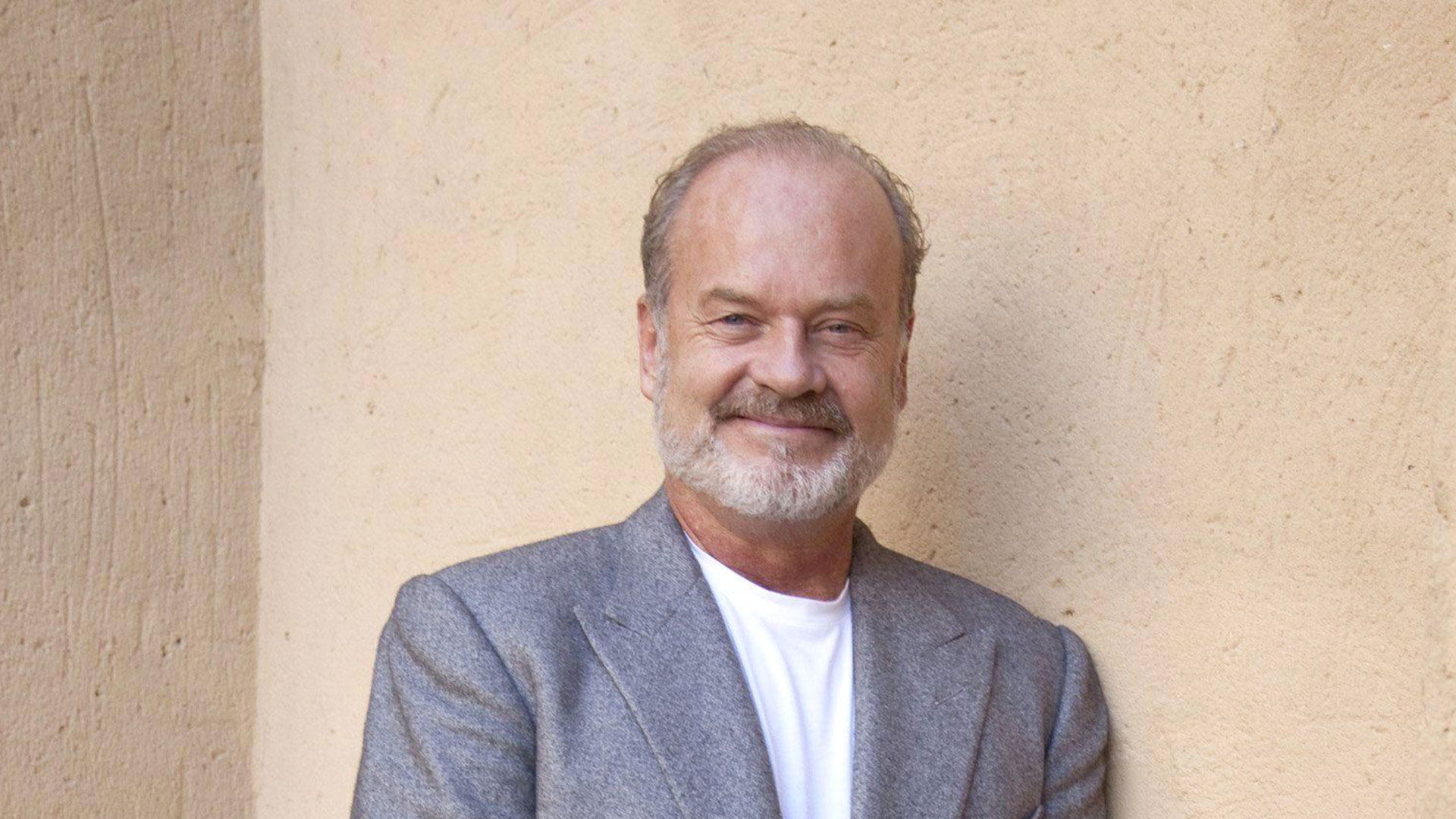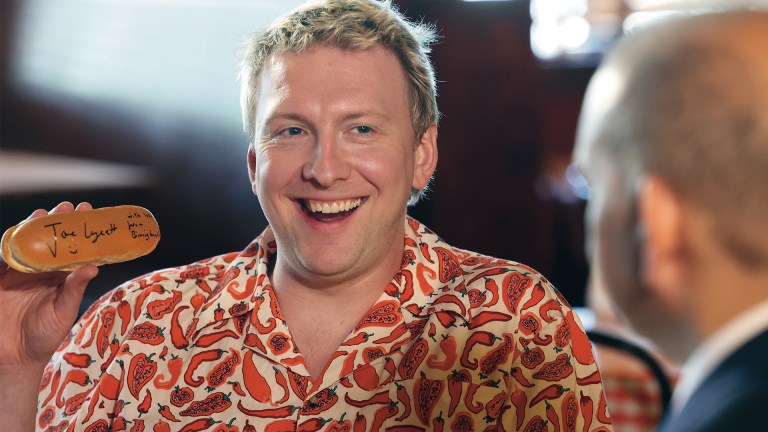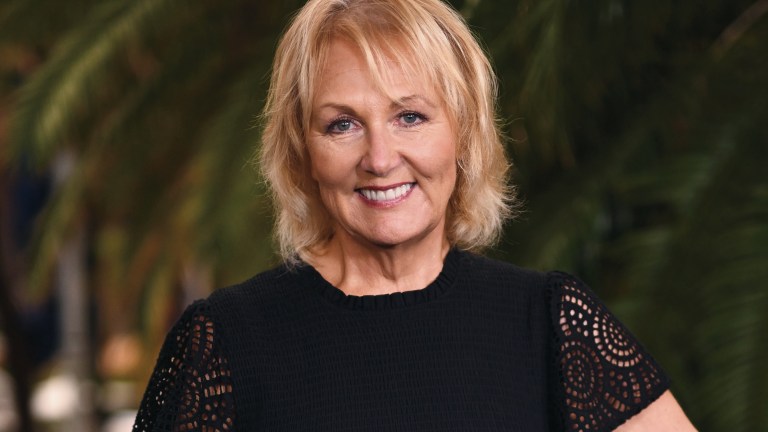He was only supposed to be Frasier Crane for six episodes, playing the shrink of bar owner Sam Malone, played by Ted Danson, after his break up with Diane Chambers (Shelley Long). Grammer claims Long had a “professional objection” to him being in the show – she had not wanted Sam and Diane to split – but that worked to his advantage. “By being so vocal about it, I think the writers started to think Frasier was funny and wanted to keep him around,” he says.
I am just a guy who has been trying his best for a long time. I happened to do it all in the public arena
At the end of Cheers, the writers transplanted Frasier from Boston to Seattle, and at Grammer’s suggestion introduced Niles – Frasier’s gloriously tightly-wound younger brother. “To replace the silly Frasier who had been on Cheers, I couldn’t be that Frasier, so it became Niles,” he explains. Like Cheers, Frasier ran for 11 years and 11 series but overshadowed its parent show commercially and critically. “The trick was the play-up to the audience,” he suggests. “I told them we were not going to play down to the audience but presume people are smarter than we used to presume.”
With the success of Cheers and Frasier came inordinate levels of fame for Grammer, and with that came tribulations. He had very public problems with alcohol and cocaine in the late 1980s and early 1990s; successive marriages foundered, and his years of reckless hedonism became the latest subject on a tabloid merry-go-round. “I have had periods of being famous as well as being infamous,” he says ruefully. “I was that guy for a while. That’s okay, and maybe I earned some of it. Certainly not all of it. I am just a guy who has been trying his best for a long time. I happened to do it all in the public arena.”
Join The Ride Out Recession Alliance
The Ride Out Recession Alliance (RORA) will develop and implement practical steps and solutions to prevent families losing their homes, and help people remain in employment.
Learn MoreWe talk about Amy, the harrowing documentary about Amy Winehouse, and discuss whether the entertainment industry as a whole has an institutionalised inability to deliver on its duty of care to the stars it creates. “It’s the golden goose thing,” he suggests. “People don’t want to upset the apple cart if things are working. She was clearly having great success but was also in a spiral, wrapped up in a drug that was bigger and smarter and meaner than her. Nobody can really walk away from an opium like that – unless you get some help. For whatever reason, there was probably a great deal of grief in her. I don’t know what it was but that is usually what drives people into that kind of escapism.”
He feels that, as a society, “we like to destroy the people who are famous” but suggests that the deaths of David Bowie and Prince this year will cause a sea change in how we value our greatest artists. “You take them for granted,” he says of celebrities when they are still alive. “Then you realise that’s a pretty amazing thing that that person actually accomplished. We should celebrate that.”
Advertising helps fund Big Issue’s mission to end poverty
An outspoken Republican who backed Mitt Romney’s 2012 presidential bid, I ask him about the party’s 2016 candidate – Donald Trump. Unlike Bunbury in Breaking the Bank, Trump is unapologetically materialistic, regarding financial success as the only success worth having. Grammer feels the rise of Trump is due to the electorate reacting to the US media being dominated by the left, as well as, in his eyes, representative government becoming a thing of the past. Trump, he feels, is the only person railing against this.
Representative government is threatened in our country
“We don’t have anyone working in Washington, except a very few, who are actually elected,” he argues. “So government of the people, by the people and for the people is basically gone in this particular world. I think that is why Donald Trump has had some great success in some circles. A lot of the American electorate is fed up of being told their vote doesn’t matter, their voices don’t matter, their lifestyles don’t matter, their beliefs don’t matter.”
After voting in its first black president for two consecutive terms, America doing a U-turn by possibly backing a man whose most famous policy is building a wall along the Mexican border seems, I suggest, incomprehensible to the rest of the world. “Donald Trump is the unknown,” Grammer proposes. “I will say that. So the alternative is what is known – which is corrupt and dishonest and, to my mind, unappealing. Bureaucracy is dictating every law we have implemented. Representative government is threatened in our country. And I think Donald Trump might win because they took too big a bite.”
Trump and his sense of economic privilege returns us to Breaking the Bank, and how free enterprise attitudes underpinning conservatism mutated when left unchecked in the City and Wall Street. “Conservatism in the long run – honestly – is about the individual and freedom,” he argues. “Being conservative doesn’t mean you have to have material wealth. It just means you have to respect each other.”
As we wrap up, I tell Grammer of the time in the late 1990s I saw his former co-star George Wendt plonk himself at the end of the bar at The Cross Keys pub in Covent Garden, then watched as people lined up to buy “Norm from Cheers” a beer. Do people approach him in bars to be psychoanalysed? “Noooooooooo!” he booms, rolling the word around his mouth like a rugby ball in a tumble dryer. “Only the very few and very foolish would ask such a thing.”
Breaking the Bank is out on DVD and digital download
Advertising helps fund Big Issue’s mission to end poverty
@Eamonn_Forde











